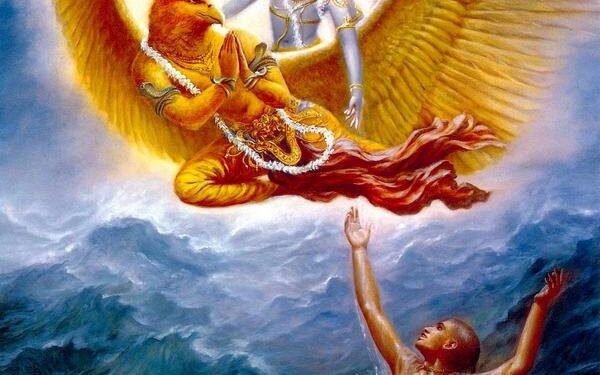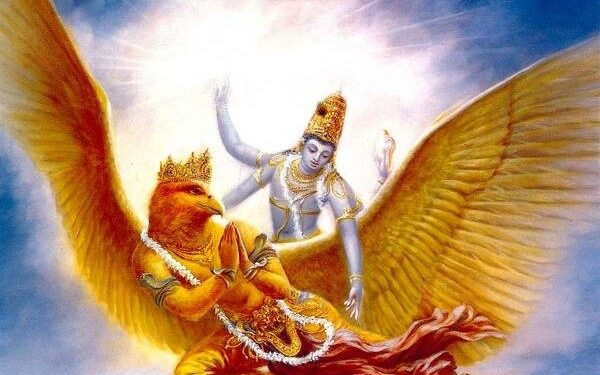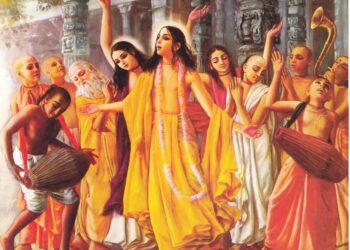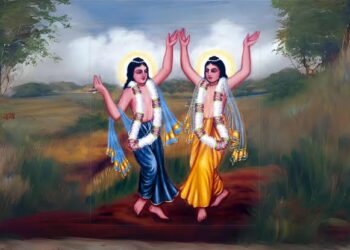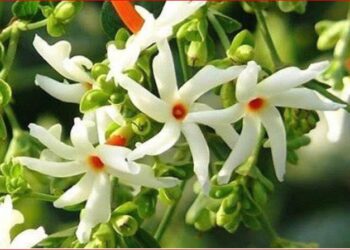1.115.62. One shall not reside in a land where there is no leader or where there are many leaders or where the leadership is vested in a woman or in a child.
1.115.63. The father protects her in childhood, the husband in youth and the son in old age. A woman is not to be allowed to stay independently.
1.115.64. A barren woman shall be abandoned in the eighth year after marriage; a woman whose children die in infancy shall be abandoned in the ninth year; a woman who gives birth only to daughters shall be abandoned in the eleventh year and a woman who speaks unpleasant words shall be abandoned immediately.
1.115.65. Three persons beyond the pale of money stick to their lords. One who is not in want, one who is afraid of men and one who is afraid of servants.
1.115.66. An intelligent man must keep aloof from these: the exhausted horse, the elephant in its rut, cows in their first parturition and frogs outside water.
1.115.67. Those who are mad after money do not have friends or kinsmen; those who are lustful and lecherous know no fear or shame; those who are worried with anxious thoughts have no pleasure or sleep and those who are oppressed by hunger do not want even salt or warmth in the food.
1.115.68. How can these have peaceful sleep? The poor, the slave, the man fond of another man’s wife and the wretch who wants to rob another man of his wealth.
1.115.69. Blissfully sleeps the man who has no debts to repay and who is free from sickness. He who is not yet married takes his food leisurely.
1.115.70. The height of a lotus is in proportion to the quantity of water in the pond; a servant becomes proud if his master is strong and influential.
1.115.71. The sun and Varuna (water) befriend the lotus when it stands firm in its place; they make it fade and putrefy if it is uprooted.
1.115.72. Those who had been friends of a man in high office become enemies when he steps down from the office. The sun delightfully causes the bloom of the lotus in water but when it is plucked and put on the ground the sun dries it up.
1.115.73. Things in their proper places and persons in their respective offices are honoured. Away from their original places neither hair nor the nails, neither the teeth nor men shine or receive consideration.
1.115.74. Manners and behaviour indicate parentage; manner of speech and accent indicate the native place; flutter up indicates affection and the physical build indicates the diet accustomed to.
1.115.75. A downpour in the ocean is unnecessary; feeding an over-fed and satiated man is superfluous; a charity made over to an affluent man is unnecessary and the meritorious actions of a base man are futile.
1.115.76. Even a person who is far off is as good as near if he has a place in the heart; if cast out of the heart a man close at hand is no better than one far off.
1.115.77. Contortions in the face, low sunk husky voice, perspiration all over the body and a frightened appearance – these are the signs usually seen at the time of death and in regard to a man out to beg.
1.115.78. A life of a worm in the person of the beggar or that of one blown by the wind over his head is better than the life of beggar himself.
1.115.79. The lord of the world, Vishnu himself, when he begged, suffered diminution of stature. Who is there superior to him who can be a suppliant and yet not suffer disrespect?
1.115.80. The parents by whom children are not educated are no better than enemies. The uneducated can never shine in an assembly of the learned like cranes amidst swans.
1.115.81. Learning gives beauty to the ugly; it is a well protected asset; it makes man a saint; it makes him popular; it is revered of the revered; it dispels the sorrow of kinsmen; it is a deity; even kings honour it; a man devoid of learning is no better than a beast.
1.115.82-83. Inside the house there are many things which can be taken away by others but not learning. Lord Vishnu expounded the essence of polity to Saunaka, as well as all sacred rites. Lord Siva heard this. Vyasa heard from Siva and we heard it from Vyasa.



